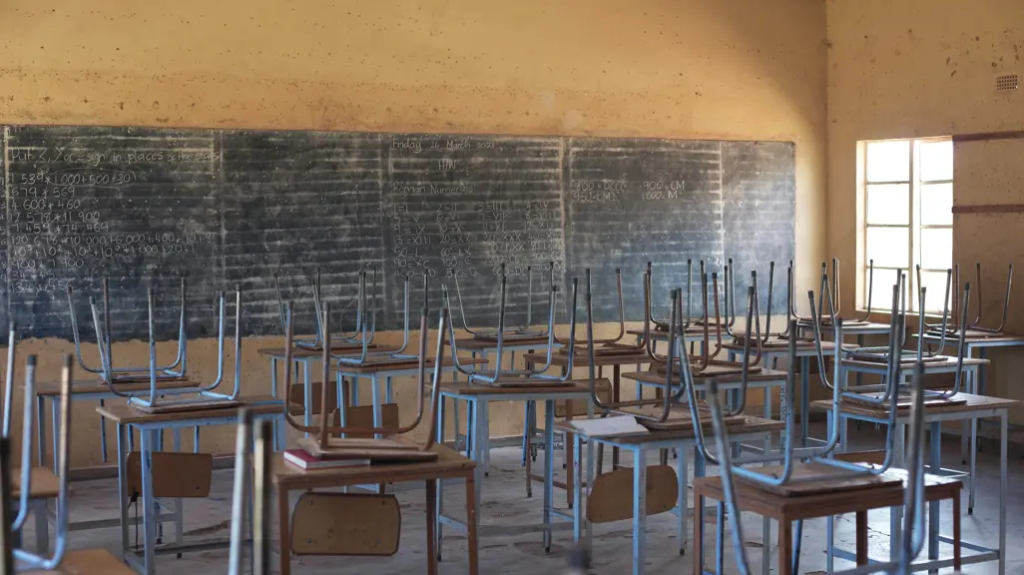Listen to the article
South Africa’s Basic Education Department has issued a strong warning against the spread of false information regarding teacher recruitment and verification processes. The department specifically denounced social media posts claiming educators must pay R350 for verification services, labeling these assertions completely fraudulent.
According to departmental spokesperson Terence Khala, all legitimate recruitment, verification, and appointment processes are handled exclusively by provincial education departments at no cost to applicants. “The department is working closely with relevant authorities to trace the source of this false information and urges social media users to refrain from sharing or amplifying unverified content,” Khala stated.
The misinformation appears to have originated from a viral TikTok video that has gained significant traction in recent weeks. The video falsely claims that teachers must pay a verification fee as part of an official employment process. Similar misleading content has spread across multiple social media platforms, creating confusion within South Africa’s education community.
This development comes at a particularly sensitive time for South Africa’s education sector, where thousands of qualified teachers await placement annually. The scam targets vulnerable job seekers in a country already grappling with high unemployment rates among qualified educators.
The department emphasized that such false claims not only mislead job applicants but also undermine public trust in the education system. Officials are particularly concerned about financially vulnerable teachers who might fall prey to such scams, potentially exposing themselves to financial loss or identity theft.
“Teachers, public servants, learners, and members of the public are reminded to rely solely on the department’s official communication channels for credible information,” Khala advised. The department maintains that all verification processes are conducted internally through provincial offices without any charges to applicants.
This is not the first time South Africa’s education sector has confronted misinformation campaigns. Earlier in 2025, the department issued similar alerts regarding fraudulent job advertisements requesting upfront payments. The government’s Peduli system, utilized for teacher placements, operates without any costs to applicants.
Education experts note that such misinformation can have far-reaching consequences beyond immediate financial losses. When false claims circulate widely, they can discourage qualified teachers from pursuing legitimate opportunities due to uncertainty about official processes. This ultimately affects the quality of education delivery across the country.
The Information Regulator of South Africa has previously warned about the proliferation of scams targeting public sector employment opportunities. These schemes have become increasingly sophisticated, often using social media platforms to reach large audiences quickly.
To combat the spread of misinformation, the Basic Education Department recommends that teachers and the public rely exclusively on official channels for information. These include the department’s website, provincial education department sites, and verified social media accounts such as @DBE_SA on X (formerly Twitter). Official job vacancies are posted on the government’s e-recruitment portal, with all verification procedures handled internally.
The department also encourages citizens to report suspicious posts to platform administrators or relevant authorities to help curb the spread of false information. Those seeking clarification on teacher recruitment or verification processes are advised to contact their provincial education offices directly.
As the department works with law enforcement to identify the sources of this misinformation, it continues to emphasize the importance of digital literacy and critical evaluation of online content, especially information related to employment opportunities in the education sector.
Fact Checker
Verify the accuracy of this article using The Disinformation Commission analysis and real-time sources.




14 Comments
Spreading misinformation about employment processes is unethical and can have real consequences. I’m glad the department is addressing this issue head-on and dispelling the false claims.
Absolutely. Sharing unverified content, even if it’s unintentional, can contribute to the problem. We all need to be more diligent about fact-checking.
This is concerning to see fraudulent claims spreading about teacher verification. It’s important the public is informed of legitimate processes to avoid confusion and exploitation.
Agreed, the department is right to issue this warning and work with authorities to trace the source of the misinformation.
This is a concerning situation, but I’m glad the department is taking it seriously and working to trace the source of the misinformation. Accurate information about hiring processes is crucial for teachers and job seekers.
Agreed. Spreading false claims, even if it’s just on social media, can have real-world impacts. The department is right to address this firmly.
This is a good example of the need for digital literacy and fact-checking, especially around employment-related claims. Kudos to the department for swiftly responding to this misleading information.
Absolutely. In the age of social media, we all need to be more cautious about verifying claims before sharing them.
I’m glad the department is taking this seriously and dispelling the false claims. Spreading misinformation about employment processes is unethical and can harm vulnerable job seekers.
Absolutely. Sharing unverified content on social media can have real consequences, so users need to be more cautious.
It’s troubling to see this kind of fraudulent content going viral. Teachers deserve accurate information about legitimate hiring practices, not deceptive claims that could cost them money.
Agreed, the department is right to address this firmly and work to trace the source. Misinformation like this can’t be allowed to spread unchecked.
It’s concerning to see false claims about teacher verification processes circulating on social media. The department is right to warn the public and work to stop the spread of this misinformation.
Agreed, these kinds of deceptive practices can be very damaging, especially for vulnerable job seekers. Glad the department is taking action.